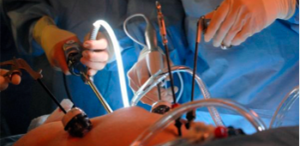
Having a bariatric surgery means changes in your body, but mostly in your lifestyle, specially your eating habits. If you have gone through a gastric sleeve or through a gastric bypass, you’re now dealing with less appetite and your digestive system may be absorbing less calories. However, good nutrition is crucial for your health and it should not be taken lightly. Less food into your body should not imply less nutrition.
When it comes to choosing what to eat, you should be extra smart to get more nutrients out of small portions. Eating protein after bariatric surgery is an essential measure to staying healthy and energetic. The recommended intake of protein after bariatric surgery should be between 60 and 80 g per day. It does not sound like much, but it can be a challenge when you have a small stomach. If you find it useful, you may keep a register of your meals in a nutrition tracker app.
Monitoring your intake on protein after bariatric surgery is a smart move, specially on the first months. Once you’re on track with your healthy eating habits, knowing what and how much to eat comes easier.
As a rule, you should be eating proteins first in every meal. This way you don’t risk getting a full stomach before receiving the amount you need. One cannot stress enough how important it is to eat enough protein after bariatric surgery. It contributes to your healing after the surgery, it supports your metabolism so you can lose fat instead of muscle, it protects your immune system, and it helps your hair, nails, and bones to stay strong.
High protein foods you can eat in small portions include:
- Eggs. You can scramble eggs with different ingredients to add more richness to your breakfast, or you can add boiled eggs to a chicken salad.
- Meat and poultry. Steamed chicken, chicken soup or red meats cooked with little to no oil with steamed vegetables are great choices.
- Fish. Avoid eating breaded or fried fish. Steamed fish with vegetables makes a fine dish.
- Seafood and tuna. Tuna salad or ceviche are good alternatives. When eating raw seafood, avoid dishes with too much rice, since that may spoil your appetite.
- Soy milk and tofu. To use with salads, soups, or a cold glass of milk.
- Cottage cheese, yogurt and other milk products. Great for breakfasts with fruits.
- Beans, lentils and chickpeas. Soups with lentils or chickpeas, beans as a side dish, and even hummus are great options to boost your intake of protein after bariatric surgery.
Try not to exceed the dose of recommended protein either because this would increment your caloric energy. Remember, it’s all about balance. Take into consideration that men tend to need more protein than women. Some men might need as much as 90 g of daily protein after bariatric surgery.
Sometimes, in spite of all your best efforts, you may be having a hard time reaching your goal of protein after bariatric surgery. In that case, don’t despair. There many other options to enrich your diet, such as daily multi-vitamin supplements, protein milkshakes, or dietary fiber supplements. Your surgeon or medical specialist can prescript which one of these alternatives is the best for you.
As you watch your diet, remember to avoid eating foods rich in carbohydrates such as pasta, white bread, and rice, fried or breaded foods, sugary sweets, drinks like soda, juice, or alcohol, chips, cookies, and general junk food. These foods and beverages will distance you from your goals, and you’ve come so far.
If you need more information about your need of protein after bariatric surgery, or if you’re interested in knowing if you are a candidate for a weight loss surgery, please call us at LIMARP Center of International Excellence for Obesity. Leading surgeon Liza María Pompa González will be glad to help you decide which options are best for you.


